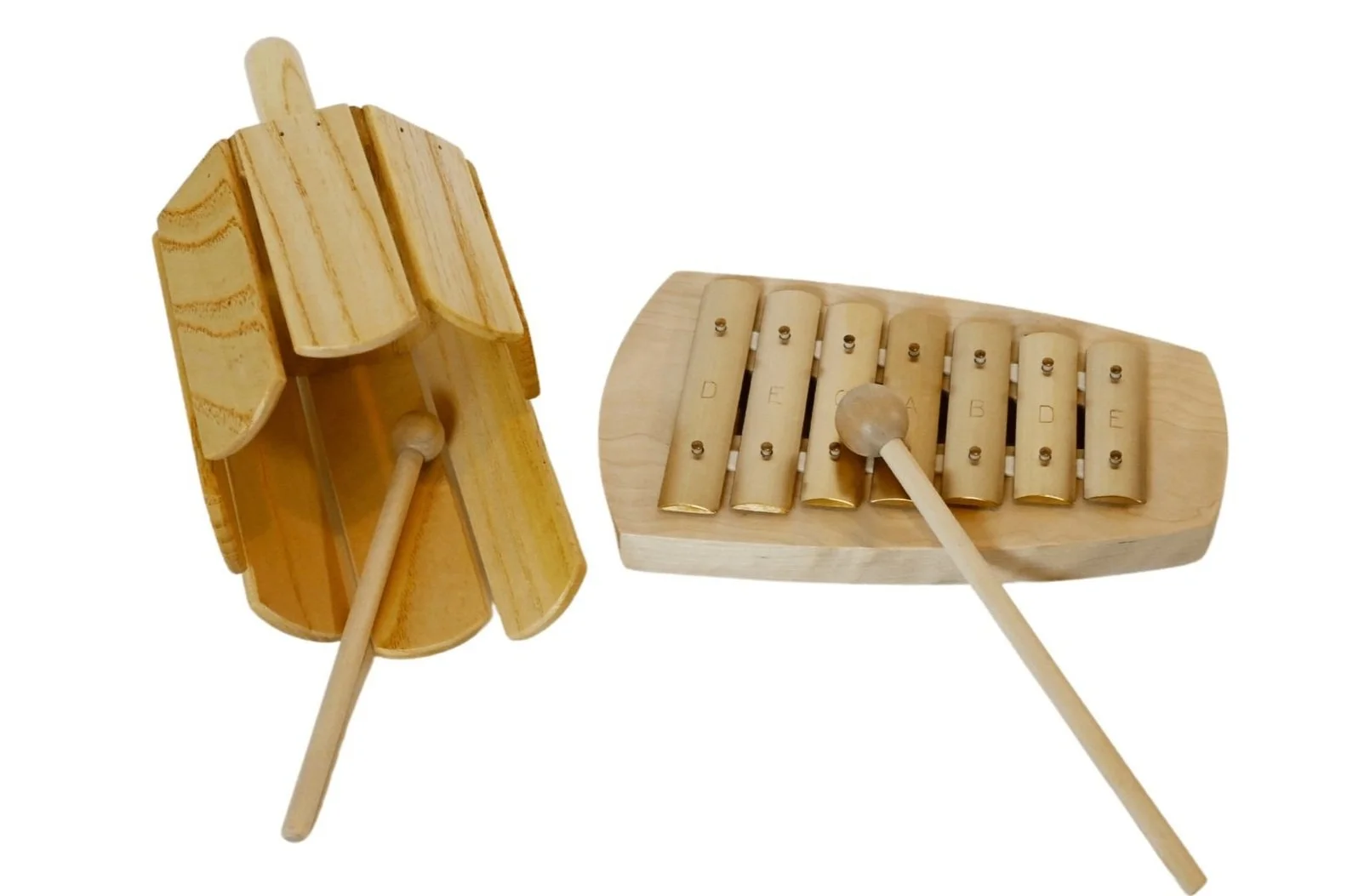Frequently Asked Questions
About Music Therapy
-
No, musical experience is not necessary. Music therapy is accessible to everyone and focuses on using music as a therapeutic tool — not on musical performance.
-
Yes. Music therapy is a clinical, evidence-based intervention regulated by the Health and Care Professions Council (HCPC). It draws on research from psychology, neuroscience, and music to support communication, emotional wellbeing, and development. There is strong evidence for its use with a wide range of client groups.
-
Music therapy uses music as a tool for emotional and social growth, not performance. Sessions focus on supporting mental health, communication, and confidence, rather than teaching musical skills or grades.
-
Yes. Music therapy can be especially effective for non-verbal children, offering non-verbal ways to communicate and express themselves safely and creatively.
-
We use a wide range of accessible instruments including drums, tambourines, keyboards, chime bars, ukuleles, and more. Sessions are tailored to each child’s comfort level and interests.
Referrals & Getting Started
-
Referrals can be made by anyone — including parents, carers, teachers, social workers, healthcare professionals, or clients themselves.
-
We offer a free 20-minute online consultation to discuss your child’s needs and explore whether music therapy is a good fit. If you’re unsure whether music therapy is right for your child, you’re welcome to get in touch via email before committing to a full consultation.
-
Depending on current availability, there may be a short waiting period for new clients. We’ll inform you of this during your consultation.
-
Yes, we are happy to collaborate with schools and local authorities to support young people within educational or community settings. Please get in touch to discuss options.
-
Music therapy can sometimes be funded through Education, Health and Care Plans (EHCPs) or direct payments. We can provide supporting information if needed for funding applications.
Session Details
-
Most sessions last 50 minutes, with an additional 5 minutes reserved for therapist planning. For younger clients, 30-minute sessions are available.
Most clients attend weekly, which helps build consistency and connection. However, we can discuss fortnightly sessions if that works better for your schedule or your child’s needs.
-
Yes, especially for younger children. For older clients, individual sessions are encouraged to support therapeutic independence, but we welcome collaboration and regular check-ins.
-
This varies depending on your goals. Some children benefit from short-term input, while others may engage over a longer period. We begin with a 3–4 session assessment phase, during which we get to know your child and identify potential therapeutic goals. These goals are reviewed regularly to make sure therapy remains appropriate and helpful.
-
Music therapy is child-led, meaning your child plays an active role in shaping each session. Activities are tailored to their interests, needs, and energy on the day — no two sessions look the same. Some children may dive straight into music-making, while others may feel shy, anxious, or unsure at first. That’s completely okay — we take things at your child’s pace, gently building trust and comfort over time.
-
Absolutely. We understand that some children feel more comfortable bringing a stuffed animal, fidget toy, or other comfort item to help them settle and feel secure during sessions.
Practicalities
-
Primarily at our Harborne studio. We also offer home and community-based sessions where clinically appropriate or more comfortable for the child. Travel outside the studio is subject to a standard mileage fee. Group sessions may be available periodically where children have similar needs and goals.
-
No — our Harborne studio currently does not have step-free access.
-
Yes. Online sessions can be arranged in certain circumstances, such as illness, school holidays, or accessibility needs. However, this format isn’t suitable for all client groups, and we’ll discuss whether it’s appropriate for your child’s needs after the initial assessment period.
-
Yes — all sessions are confidential, in line with HCPC and professional ethics. Information is only shared with consent, unless safeguarding concerns arise.
-
Payment is made via bank transfer. The assessment phase (3–4 sessions) is paid for in advance. After that, ongoing sessions are invoiced monthly in advance.
Communication & Reports
-
We provide regular updates, either briefly at the end of sessions or through scheduled reviews. A complimentary 15-minute check-in is offered every 12 sessions. Longer or additional meetings are available and charged pro rata at the standard session rate. You’re welcome to get in touch between sessions with any questions.
-
Yes. Reports can be provided for schools, healthcare teams, or funding applications such as EHCPs. Options include short updates, full clinical reports, or summaries tailored for multi-professional settings. There may be an additional fee, and a breakdown of costs is available on request.
-
Yes — with your consent, we’re happy to liaise with other professionals involved in your child’s care.
-
You’re welcome to raise concerns at any time. We can arrange a time to talk outside of session hours, either by phone or video, to ensure there's space to discuss things fully. These meetings may be charged pro rata depending on length.
-
We ask for at least 24 hours’ notice to cancel or reschedule a session. Cancellations made with less than 24 hours’ notice, or missed sessions, are charged at the full session fee.
If you know in advance that you’ll need to take a break (e.g. holidays or illness), please let us know — we’ll do our best to accommodate, where possible.
More questions? Feel free to email me at: niamh@musictherapybirmingham.co.uk

